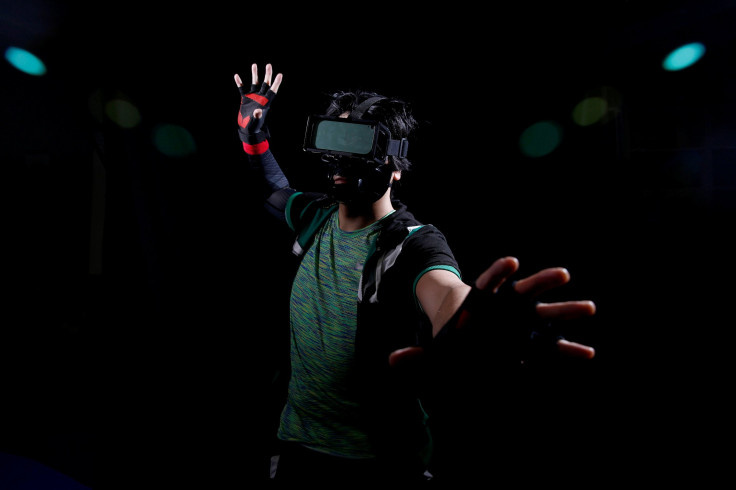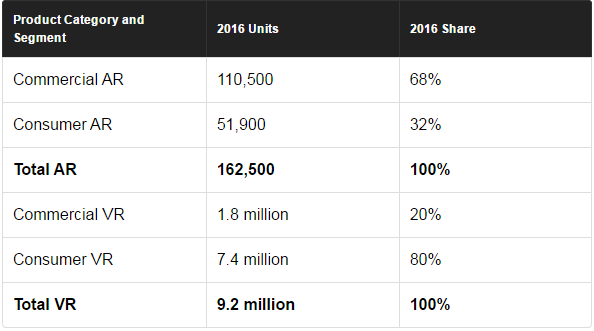The Future Of Augmented/Virtual Reality

This article originally appeared on the Motley Fool.
Both Apple (NASDAQ:AAPL) and Facebook (NASDAQ:FB) are betting big on augmented reality (AR) and virtual reality (VR). The Mac maker believes that in order to bring AR to the mainstream, it needs to be integrated directly into a mobile device's operating system, potentially undermining Facebook's current efforts to build an AR platform into its core app. However, both companies are reportedly working on AR headsets, which would create a new playing field for competition.
Researcher IDC has some good news for Apple and Facebook: The market is expected to soar in the years ahead.
VR will lead the way initially, but AR may have more opportunity long term
IDC has released estimates for the AR and VR markets through 2021, and both AR and VR should put up strong gains as adoption rises within both the enterprise and consumer markets. Here's how the AR and VR markets fared in 2016:

By 2021, the total AR market is expected to jump to nearly 24.6 million headsets, while the VR market could potentially reach 67.1 million headsets.
There are a couple of other notable observations in the estimates. Currently, AR is more concentrated in the commercial and enterprise markets, while the exact opposite is true of VR, where gaming is one of the most popular applications. Alphabet 's (NASDAQ:GOOG) (NASDAQ:GOOGL) Google Glass was once the poster child for AR, and while the search giant discontinued consumer sales of Glass a while back, Glass is still used in commercial settings like manufacturing. That's a perfect use case, since an AR headset can deliver information to workers while leaving their hands free.
IDC notes that on the VR front, smartphone-connected headsets are the most popular, since they are also the cheapest and therefore the most approachable way for users to try out the technology; you just buy a VR accessory instead of having to invest in high-end hardware. Tethered headsets and high-end stand-alone headsets are expected to hit the market within the next year or two, which could help spur the market further.
AR will "sit slightly in the background of VR," according to IDC, partially because it is more difficult to deliver a compelling AR experience. VR headsets are expected to drive the overall market's volume. Longer-term, IDC still believes that AR is "the larger of the two plays here when looking at AR and VR combined."
A rising tide
It seems unlikely that Apple will venture too deeply into VR. In fact, investors knew almost nothing about Apple's VR plans until recently. The new updated iMac was designed to support third-party VR headsets; that represents Apple's first foray into VR. Considering Apple CEO Tim Cook's excitement over AR, it seems that the company will focus its own products on AR, so it's probably just a matter of time before Apple unveils its own AR headset. It seems doubtful that Apple will release its own VR headset anytime soon (if ever).
Facebook continues to push forward with VR via its Oculus subsidiary, but CEO Mark Zuckerberg clearly has plans for an AR headset, too, which has the potential of freeing Facebook from the confines of other platforms if it can build its own. If the market does end up putting up growth anywhere near IDC's estimates, there will be plenty to go around.
Suzanne Frey, an executive at Alphabet, is a member of The Motley Fool's board of directors. Evan Niu, CFA owns shares of Apple and Facebook. Evan Niu, CFA has the following options: long January 2018 $120 calls on Facebook. The Motley Fool owns shares of and recommends Alphabet (A shares), Alphabet (C shares), Apple, and Facebook. The Motley Fool has a disclosure policy.





















